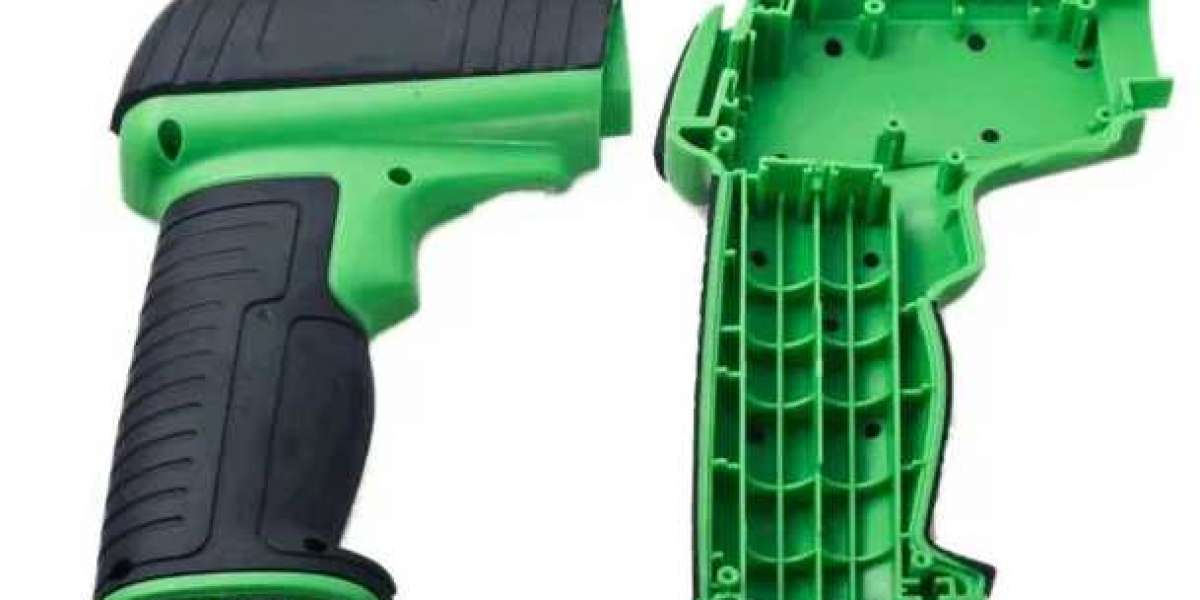What is Overmolding Injection Molding?
Overmolding injection molding is a specialized form of traditional injection molding. It involves two distinct steps: first, manufacturing a primary substrate or core, and second, molding a second material onto this substrate to form a finished part. The process allows manufacturers to combine different materials—such as soft rubber and rigid plastic—to achieve specific properties like improved grip, sealing, or aesthetic appeal.
The key advantage of overmolding is the ability to create parts with multiple functionalities without the need for assembly, which reduces costs and production time. For example, a smartphone case might have a rigid plastic shell with a soft rubber overmolded grip area, providing both protection and comfort.
Overmolded Plastic and Overmoulding Parts
Overmolded plastic refers to the final product that results from the overmolding process. These parts are typically characterized by their seamless integration of different materials, offering enhanced durability and user experience. Overmoulded plastic components are common in applications requiring ergonomic handles, sealing surfaces, or aesthetic accents.
Overmoulding parts can include a wide range of items such as power tool grips, medical device housings, and automotive interior components. The process allows for precise control over material placement, thickness, and adhesion, ensuring high-quality, reliable parts.
Benefits of Custom Overmolding Plastic
One of the main reasons manufacturers opt for overmolding is the ability to customize the plastic components to meet specific functional and aesthetic requirements. Custom overmolding plastic offers several benefits:
Improved grip and comfort due to soft elastomer overmolds
Better sealing and insulation properties
Enhanced aesthetic appeal with multi-color or textured finishes
Reduced assembly costs by integrating multiple functions into one part
Increased durability, especially in high-wear areas
By tailoring the overmolding process, companies can produce parts that stand out in the market, providing both performance and visual appeal.
Applications and Industries
Overmolding injection molding is versatile and applicable across numerous industries:
Consumer Electronics: Overmolded grips for devices like power tools and handheld gadgets.
Medical Devices: Soft-touch grips and ergonomic handles for surgical instruments.
Automotive: Dashboards, armrests, and control panels with integrated soft-touch surfaces.
Household Appliances: Handles, knobs, and protective covers with enhanced grip and aesthetics.
Each application benefits from the unique properties that overmolding imparts, such as improved comfort, safety, and visual differentiation.
Conclusion
Overmolding injection molding continues to grow in popularity due to its ability to produce complex, multi-material parts efficiently. Whether creating overmolded plastic components for consumer products or specialized medical devices, the process offers unmatched flexibility and quality. For businesses interested in exploring overmolding solutions, reputable manufacturers and service providers can be found at, where they can access custom overmolding plastics tailored to specific needs. Embracing overmolding technology can lead to innovative product designs, cost savings, and a competitive edge in the marketplace.














